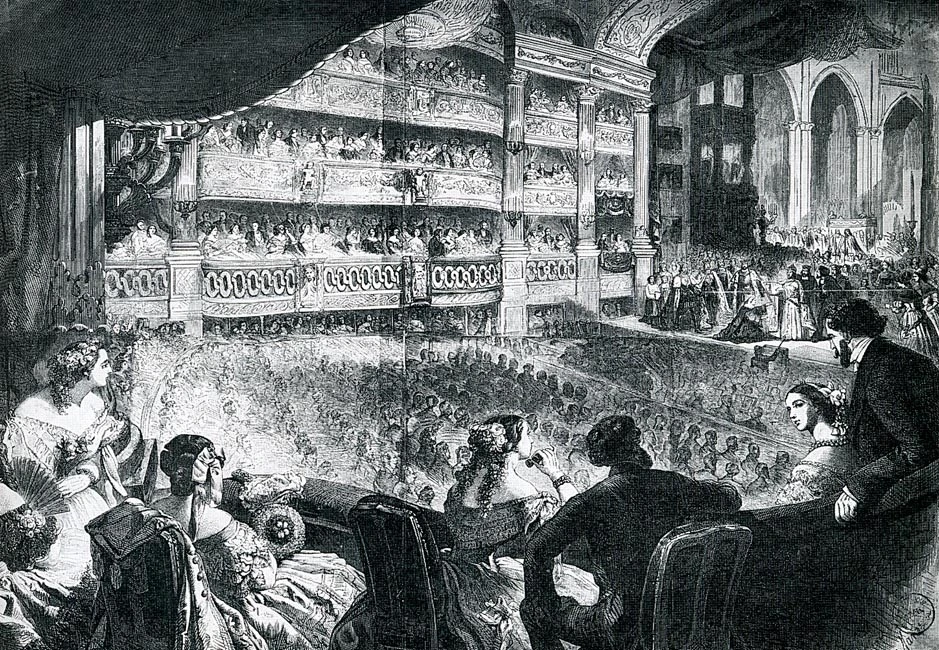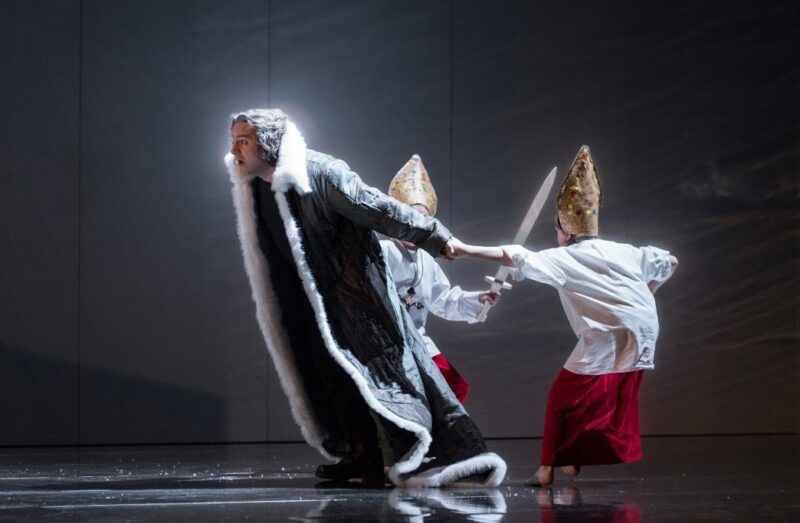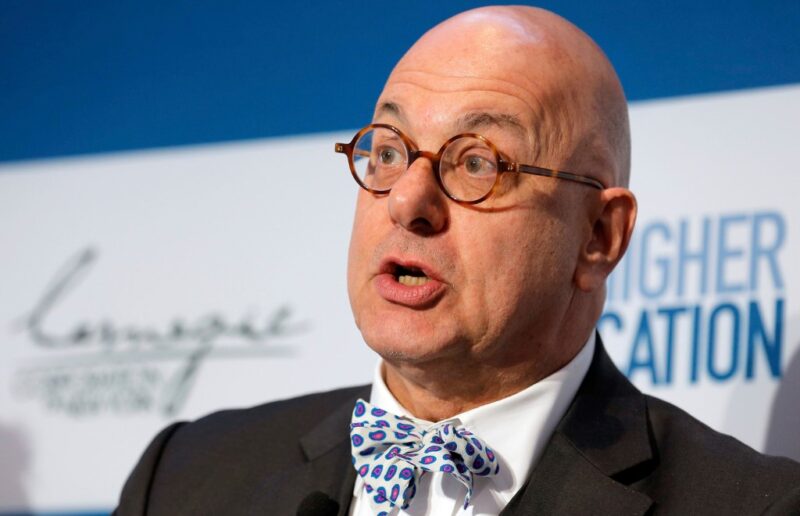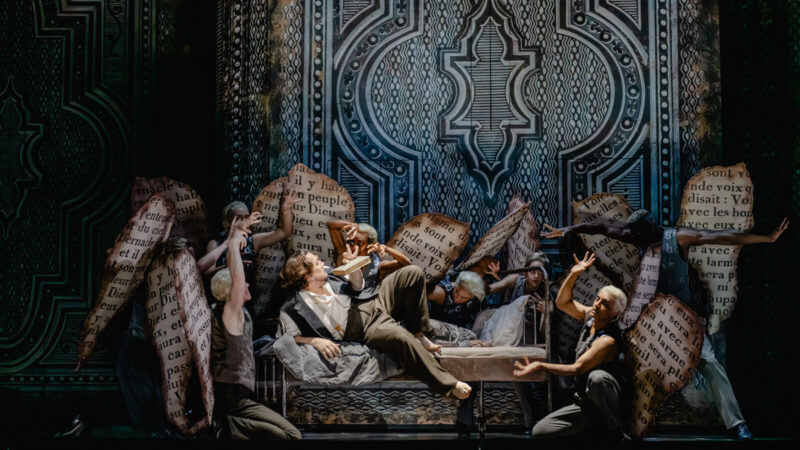For centuries, great works of music have fallen into obscurity. Sometimes, pieces with enormous potential go unheard for generations. A shining example of this phenomenon is Giacomo Meyerbeer’s Le Prophète. Once a celebrated triumph of French grand opera, Le Prophète drifted into near-forgotten territory.
The revival of such works requires vision, dedication, and an understanding of the historical and cultural contexts that made them significant in their time. Today, Le Prophète is returning to the stage, thanks to the efforts of Bard College and conductor Leon Botstein.
The reawakening of Le Prophète sheds light on the importance of rediscovering these forgotten musical works and the influence of cultural institutions like Bard College. Their collaboration is not just about staging a forgotten work. It is about bringing history back to life and reintroducing audiences to the beauty and depth of classical works that might have been lost forever.
Leon Botstein’s Dedication to Rediscovering Masterpieces
Leon Botstein, music director and principal conductor of the American Symphony Orchestra, has long been a force in the world of classical music. His passion for championing lesser-known works sets him apart. In addition to his role with the orchestra, Botstein is a central figure at Bard College, where he has made it a mission to bring forgotten music to modern audiences. His efforts to stage Meyerbeer’s Le Prophète illustrate his commitment to exploring underappreciated pieces and revealing their timeless value.
Under his leadership, Bard has consistently been a hub for uncovering lost operatic treasures. By engaging with works like Le Prophète, Botstein redefines what it means to keep classical music alive in the modern era.
The Significance of Le Prophète

Giacomo Meyerbeer’s Le Prophète premiered in Paris in 1849. It was an instant success, embodying the grand scale and dramatic flair that typified French opera of the 19th century. It tells the story of a religious leader, John of Leyden, during the 16th-century Münster Rebellion. The opera, with its sweeping orchestration and complex characters, quickly became a cornerstone of the operatic world.
However, over time, its popularity waned. Changing tastes and the rise of new styles in the 20th century pushed Le Prophète out of the spotlight. For many years, it existed only in the memories of music historians and rare performances. Its absence from the mainstream left a gap in the understanding of Meyerbeer’s influence on the evolution of opera.
Bringing it back offers more than a simple performance—it revives a piece of cultural history. Bard College, known for its rich engagement with both music and the liberal arts, has taken a bold step in returning Le Prophète to the stage, and by doing so, it reasserts the work’s significance.
Bard College’s Role in Reviving Le Prophète
Bard College has long stood at the forefront of educational and artistic innovation. Its ability to marry academia with real-world cultural contributions sets it apart. By choosing to collaborate with Leon Botstein, the institution highlights its dedication to producing performances that not only entertain but also educate.
The college’s platform offers more than a simple venue. Bard provides the resources necessary for reviving large-scale productions like Le Prophète, a task that requires significant time and talent. It involves deep research, casting, set design, and an understanding of the opera’s historical context. Through this, the college becomes more than an academic institution—it becomes a cultural force capable of reshaping the musical landscape.
The Challenges and Triumphs of Restoring Le Prophète

Restoring forgotten operas is no easy task. Many of these works are complex, requiring intricate staging and specialized vocal talents. Meyerbeer’s Le Prophète is no exception. The sheer scale of the production, with its grand sets and epic narrative, presents challenges to any modern stage.
However, the rewards far outweigh the difficulties. For Bard College and Botstein, the opportunity to revive Le Prophète is a triumph. It offers a rare chance to introduce contemporary audiences to a masterpiece they might never have encountered otherwise. The production not only celebrates Meyerbeer’s brilliance but also reaffirms Bard’s place as a leader in the world of artistic innovation.
Audience Reception and Impact
The reintroduction of Le Prophète to modern audiences is more than a nostalgic revival of a historical artifact. It is a reminder of the enduring power of music to transcend time and space. Audiences experiencing Le Prophète for the first time will be struck by its dramatic force, its emotional depth, and its relevance to today’s cultural climate.
Bringing Le Prophète back into the spotlight gives modern audiences a window into a bygone era. Meyerbeer’s work offers more than entertainment; it presents an opportunity for reflection. The themes of power, religious fervor, and rebellion resonate just as strongly today as they did in 1849. Bard College’s decision to stage the opera speaks to the institution’s understanding of the importance of cultural memory.
The Future of Revivals at Bard

With the successful return of Le Prophète, Bard College and Leon Botstein set a precedent for future productions. Their efforts underscore the value of reexamining classical works and finding ways to present them to modern audiences.
Bard’s commitment to artistic excellence will likely lead to further revivals of forgotten works. By blending historical research with performance, the institution not only brings great works back to life but also enriches the cultural landscape. For those who care deeply about preserving the richness of the past, Bard College remains a beacon of hope.
Conclusion ─ A Legacy of Rediscovery
The revival of Giacomo Meyerbeer’s Le Prophète by Bard College and Leon Botstein marks a significant cultural achievement. It goes beyond the mere presentation of an opera. It represents a deep commitment to the preservation of musical history and the education of future generations.
Le Prophète may have been forgotten by many, but through the efforts of Bard and Botstein, it has been reintroduced in all its grandeur. The return of the opera serves as a reminder that great works of art can transcend time. By bringing it back, Bard College has not only enriched the present but also secured a piece of the past for future generations to appreciate.









